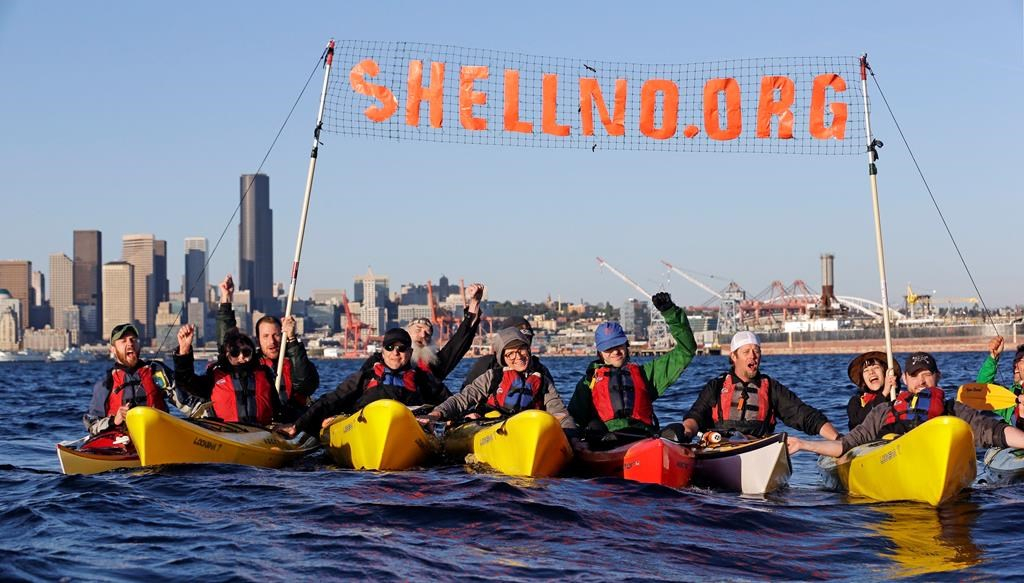Seattle Mayor Ed Murray threw a wrench into plans for a 400−foot oil−drilling rig to arrive in Seattle when he announced Monday that the Port of Seattle can’t host Shell’s offshore Arctic fleet until it gets a new land−use permit.
Royal Dutch Shell PLC has been planning to base its fleet — including a drill rig and two tug boats — at the port’s Terminal 5 for six months each year, when they’re not being used in the Arctic. Environmentalists have already sued over the plan, saying the port broke state law in February when it signed a two−year lease with Foss Maritime, whose client is Shell, without doing an environmental review.
Murray said city planners reviewed the use of Terminal 5 as a base for the drilling fleet and found that it would violate the port’s 20−year−old shoreline land−use permit, which allows a cargo terminal on the site.
"I expect the port to obtain all required city permits before any moorage or work begins at T5 on off−shore oil drilling equipment," the mayor said in a statement Monday. "While requiring a new permit may not stop the port’s plans, it does give the port an opportunity to pause and rethink this issue."
"To prevent the full force of climate change, it’s time to turn the page on things like coal trains, oil trains and oil drilling rigs," he said.
It’s now up to the port to decide whether it wishes to apply for a new permit, city planning spokesman Bryan Stevens said. It could take several weeks to several months for a permit to be issued, he added.
The port could also appeal the interpretation or cancel its lease, among other options.
Port of Seattle spokesman Peter McGraw said the port wasn’t prepared to comment because it had not received any official findings from the city.
Curtis Smith, a Shell spokesman, said Monday that the company is still reviewing the city’s interpretation.
Shell is considering offshore exploratory drilling again this summer in the Chukchi Sea off Alaska’s northwest coast if it can get the necessary permits. The company has argued that its planned activities at the terminal — such as docking, equipment loading and crew changes — are no more environmentally risky than loading or unloading shipping containers.
In its permit review, the Seattle planning department said the proposed use wasn’t compatible with a cargo terminal because "neither the drilling rig nor the tugboats would carry container cargo."
"We’re very happy," said Patti Goldman, managing attorney with Earthjustice, which sued the port on behalf of conservation groups. She added that Monday’s decision "will obviously keep a cloud over the permit."
"This is a dispute between the city and the port," Foss Maritime spokesman Paul Queary wrote in an email. "When we entered into our lease with the Port of Seattle, the port assured us that our project was covered by the existing permit. We’re going forward with the work accordingly."
One of the drill rigs Shell is planning to use if it can obtain appropriate permits, the 400−foot−long Polar Pioneer, arrived in Port Angeles on the Olympic Peninsula last month, following a journey across the Pacific on its way to Seattle.
Smith said Monday no final dates have been determined for when the drill rigs will arrive in Seattle. Some activists plan to protest near the port in kayaks when they arrive.
Critics say welcoming the fleet risks pollutant spills in Puget Sound and that enabling oil drilling in the Artic runs counter to Seattle’s environmental sensibilities. Supporters say the drilling will happen regardless of where the fleet is based and that the lease will bring hundreds of well−paying jobs to the city.


Comments